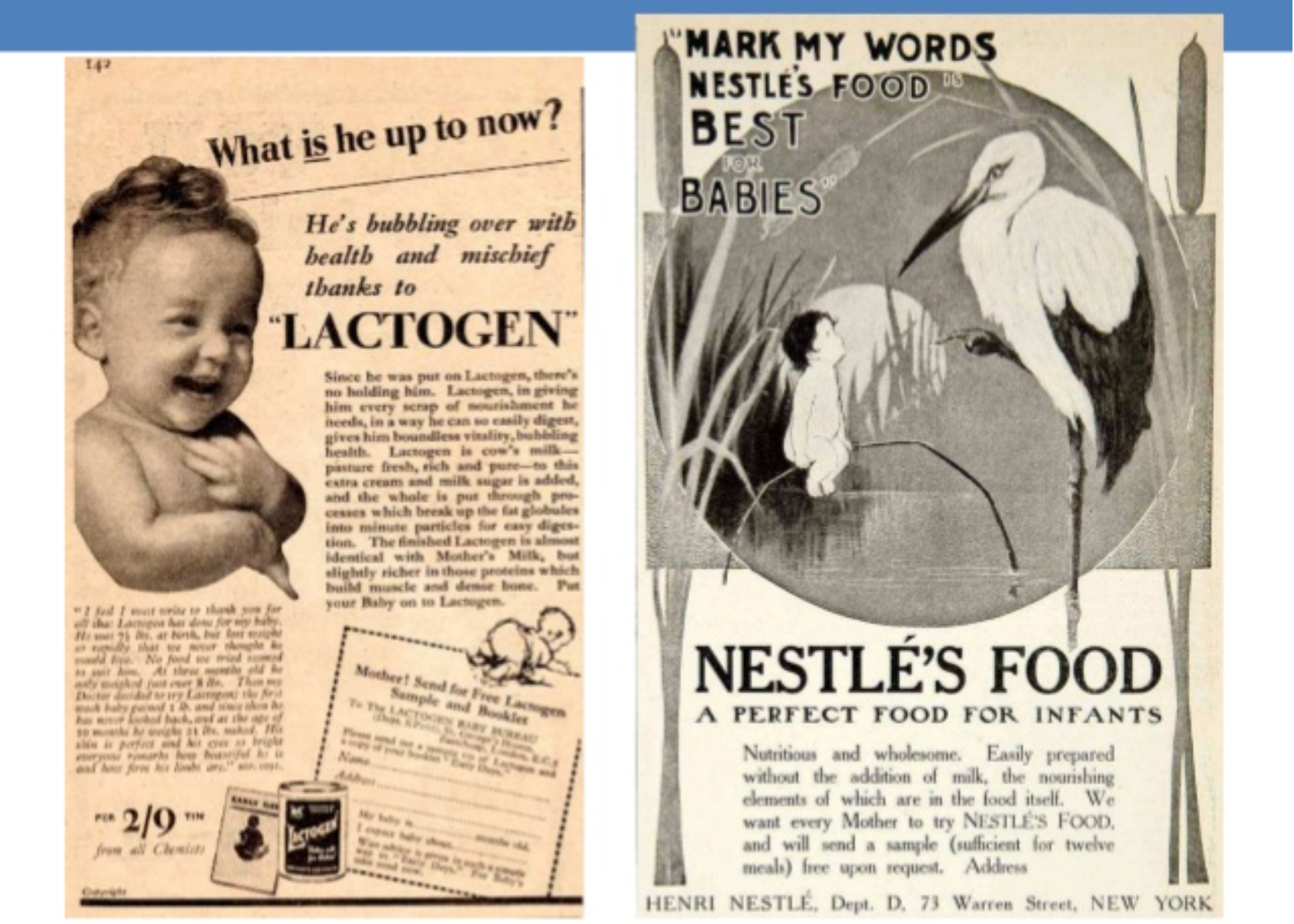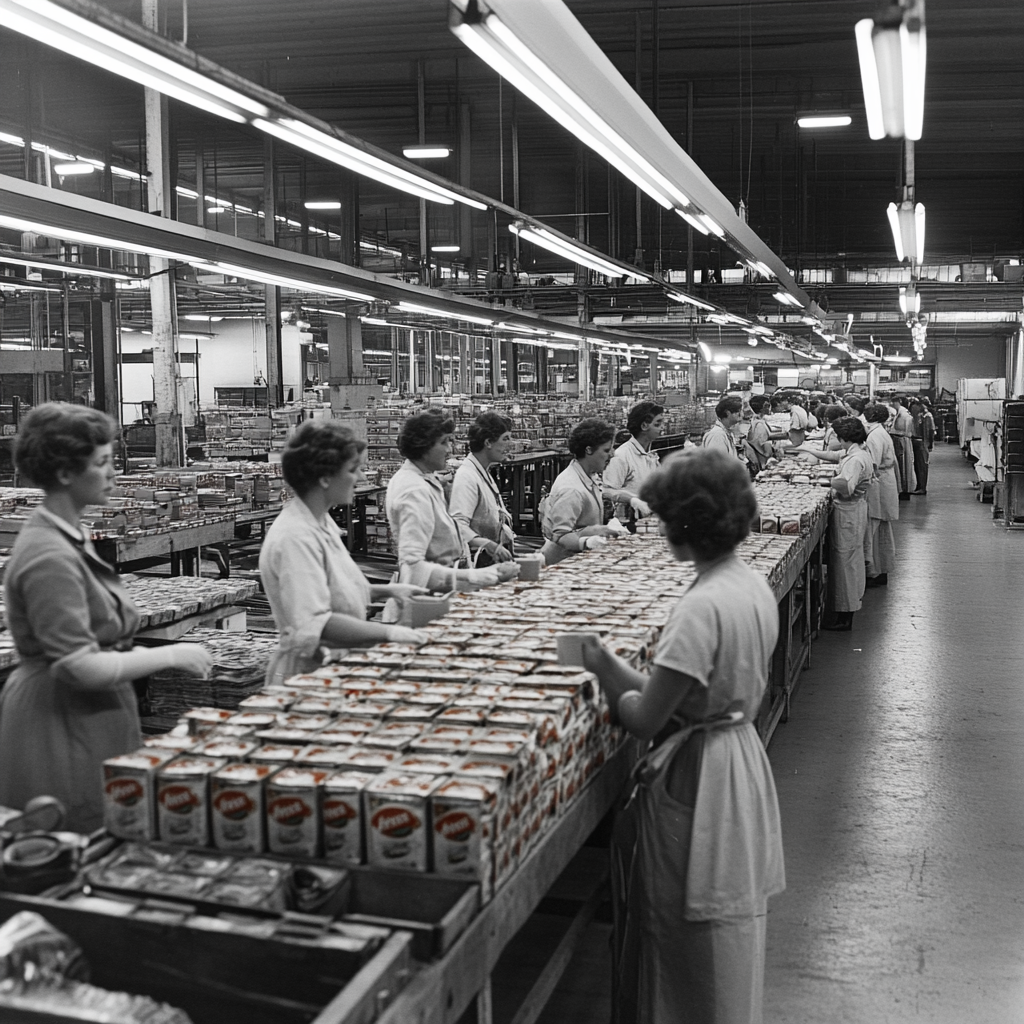Nestlé’s Breast Milk Scandal
A Car Crash of Corporate Greed and Deception
When the name Nestlé comes to mind, one might think of chocolate bars or instant coffee. However, behind its glossy corporate facade lies one of the most harrowing scandals in modern business history: the Nestlé breast milk scandal, also known as the Nestlé infant formula controversy.
This catastrophe, which played out primarily during the 1970s, stands as a glaring example of what can only be described as car crash marketing, a marketing strategy so dangerous and reckless that it destroyed lives and communities while crashing the brand’s credibility into an ethical abyss.
Note:
This article features content from the Marketing Made Clear podcast. You can listen along to this episode on Spotify:
A Triggering Tale of Corporate Deceit
Before diving into the grim details, it’s important to issue a trigger warning. This scandal involves children—infants—suffering and dying as a result of negligent corporate behaviour.
As a parent, the mere thought of this is deeply emotional.
If the topic of children in distress hits close to home, perhaps this article isn’t for you…
For those still with me, let’s examine how Nestlé’s marketing tactics in the 1970s were not just questionable, they were criminally nefarious. The company aggressively promoted infant formula in developing countries, a product that, while necessary in some cases, does not come close to replicating the health benefits of breast milk. In fact, breast milk is universally recognised as the best source of nutrition for infants. Yet, Nestlé’s marketing tactics were designed to convince vulnerable mothers otherwise.

The Deceptive Campaign: Selling Lies Dressed as Nurses
Nestlé’s marketing efforts in these nations took on an insidious form. The company deployed saleswomen dressed as nurses—a deeply manipulative tactic meant to imply medical endorsement. These faux nurses distributed free samples, coaxing mothers to switch from breastfeeding to formula feeding under the illusion that it was a superior, or at least equivalent, alternative.
Can you imagine the betrayal?
You’re a mother in a country where healthcare is already scarce, trusting a figure dressed as a nurse to offer you advice, only to later find out they were salespeople all along.
This wasn’t just a bad business decision. This was exploitation.
By marketing formula as superior, Nestlé created a false and harmful social pressure. Mothers began to feel inadequate if they didn’t use formula, as though they were not providing the best care for their babies. The tragedy is that many of these mothers lacked access to clean water and proper sanitation, which meant that mixing powdered formula with contaminated water led to dire consequences. Infants suffered from malnutrition, diarrhoea, and in far too many cases… death.

The Aftermath: Malnutrition, Disease, and Infant Deaths
The chilling reality of Nestlé’s actions is that they knew.
They knew that breast milk was superior.
They knew that families in the developing world would struggle with sanitation.
And they certainly knew that their product, when diluted due to cost constraints, would fail to provide the necessary nutrients for infant survival.
But the campaign continued nonetheless.
Nestlé’s strategy didn’t just compromise the health of these children, it actively endangered their lives. The problem worsened when many families couldn’t afford to maintain the costs of infant formula. Some mothers, unable to sustain the financial burden, diluted the formula to stretch it further, which exacerbated malnutrition and other health problems.
To say that children died as a result of Nestlé’s marketing efforts is no exaggeration; it’s a fact.
This is corporate greed in its most grotesque form, putting profits over lives, and not just any lives, but the lives of society’s most vulnerable: infants.
Boycotts and the Birth of a Global Movement
Unsurprisingly, Nestlé’s reckless actions sparked outrage. In 1977, a global boycott was organised, with groups like the International Baby Food Action Network and Save the Children leading the charge. People across the world stood in solidarity, refusing to buy Nestlé products, and the boycott gained enough traction to severely damage the company’s reputation.
Even the World Health Organisation (WHO) stepped in. In 1981, the WHO adopted the International Code of Marketing of Breast-milk Substitutes, which sought to regulate how companies like Nestlé marketed their products. The code was a direct response to the scandal and was designed to prevent such an egregious abuse of power from happening again.
Nestlé agreed to comply with the WHO Code, but that compliance has been far from spotless. Allegations of violations have continued for decades, casting a long shadow over Nestlé’s global operations. The scandal may have forced the company into temporary retreat, but it certainly didn’t kill off questions around the corporation’s ethics.

Car Crash Marketing: A Lesson in Recklessness
Nestlé’s breast milk scandal is a textbook example of car crash marketing.
This term is apt not only because of the reckless and immoral tactics used but because it shows how damaging and irreversible the impact can be. In car crashes, there’s always the possibility that someone – innocent, unknowing – will get hurt. In Nestlé’s case, that “someone” was thousands of infants in developing countries, suffering from malnutrition and disease.
Car crash marketing occurs when corporations become so blinded by profit that they drive headlong into disaster, taking their consumers with them. It’s marketing without a moral compass, selling without considering the consequences.
Nestlé’s breast milk scandal highlights just how dangerous corporate greed can be when it’s disguised as humanitarian aid. The company was peddling a product that cost lives, cloaked in the false promise of modern convenience and better health. It was a lie that literally killed.

The Lessons We Must Remember
As a case study in both corporate ethics and marketing practices, the Nestlé breast milk scandal remains relevant today. It teaches us that companies wield incredible power over consumers, particularly in vulnerable communities. But with that power comes a responsibility, a responsibility to market ethically, to ensure that products are safe and genuinely improve lives.
The lessons learned from this scandal reverberate through global health and marketing standards today. We now have stricter regulations on how breast milk substitutes are marketed, especially in developing countries. But the fight isn’t over. Corporations continue to push the envelope, and it’s up to consumers, regulators, and watchdog groups to remain vigilant.
Because, if history has taught us anything, it’s that some companies will always find new ways to profit from the most vulnerable if given the chance. We must ensure that the Nestlé breast milk scandal remains a cautionary tale, a reminder that no profit is worth the cost of innocent lives.
And that, my friends, is the brutal truth behind Nestlé’s catastrophic car crash of a marketing campaign.


